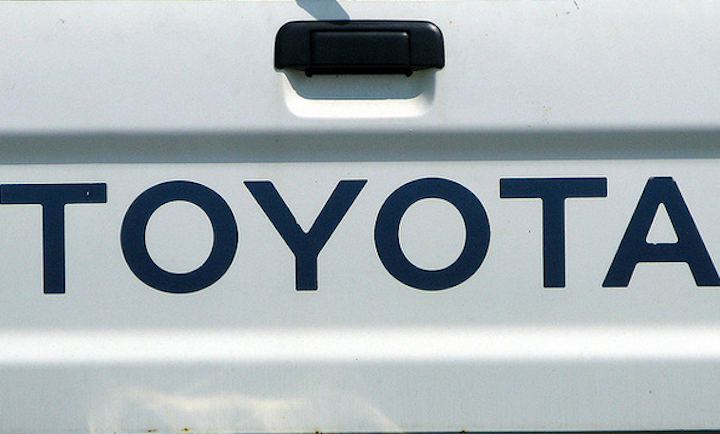NHTSA Denies Second Petition To Open Investigation Into Unintended Acceleration Of Toyota Vehicles
For the second time this year, the National Highway Traffic Safety Administration announced it would not open a probe into millions of Toyota vehicles regarding possible unintended acceleration.
The agency announced in documents [PDF] on Friday that it had denied a June petition [PDF] to investigate “low-speed surging” – also known as unintended acceleration – in several Toyota and Lexus vehicles after determining that crashes cited in the appeal were consistent with driver error.
Back in June, a California man requested that the agency look into cars in which the vehicle begins “accelerating and the engine RPM increases even when the accelerator pedal is not depressed.”
The petition was based on his interpretation of Event Data Recorder data from a crash his wife experienced in a 2009 Lexus ES350 vehicle and from two other crashes involving a 2010 Toyota Corolla and a 2009 Toyota Camry.
With regard to his wife’s accident, the man alleged that the car’s electronic throttle control malfunctioned when it crashed into bushes, as she did not press the gas – an assertion supported by data recording from the vehicle.
However, according to documents posted by NHTSA on Friday, the agency evaluated the petition and found that the three crashes were consistent with pedal misapplications by the driver mistaking the accelerator pedal for the brake when attempting to park.
“The petitioner’s allegations regarding the three crashes are based upon several misconceptions about the manner in which the EDR samples and records pre-crash data in the ES350, Corolla and Camry vehicles,” NHTSA states. “In each of the three crashes, the vehicles accelerated as the drivers were attempting to park the vehicles. All three accelerations occurred as the vehicles were entering the intended parking spaces and in the times and positions where driver braking should be initiated to safely park the vehicles.”
NHTSA determined that based on investigators’ analysis it is unlikely that the agency would issue an order requiring notification and remedy of a defect related to vehicle safety.
This is the second time in three months that NHTSA has denied a petition related to an investigation into unintended acceleration of Toyota vehicles: Back in May, the agency said it wouldn’t open a probe into low-speed surging in nearly 1.7 million model year 2006 to 2010 Toyota Corollas, citing similar findings.
NHTSA investigators evaluated that petition by performing over 2,000 miles of test driving of the petitioner’s vehicle, reviewing a June 2014 accident report and vehicle data recorder, as well as reviewing nearly 160 similar consumer complaints submitted by the petitioner.
Had the agency approved the two petitions, it would have marked the second and third for Toyota regarding unintended acceleration in the last six years.
The previous investigation, which began in 2009 following the tragic death of an off-duty California Highway Patrolman and his family in a Lexus, ended in March 2014 when the automaker reached a deal with the Department of Justice to pay $1.2 billion to close a criminal probe over the issue.
In the California case, the vehicle went off the road at around 120 mph, but not before someone in the car called 9-1-1 urgently seeking help because they could not get the car to slow down.
This incident and other reports led to the recall of millions of Toyota vehicles, along with hundreds of civil lawsuits, some of which have been settled and some that continue to linger in the legal system.
NHTSA tied the sudden acceleration problems to five deaths. However, the root cause of the problem has been a much-disputed topic. Some have claimed it was a problem with the vehicles’ electrical systems, while Toyota blamed it on unsecured floor mats that became trapped under the accelerator or brake pedals, making it difficult or impossible to control the speed of the cars.
Back in March 2014, it was reported that federal prosecutors found evidence that Toyota made misleading statements about safety problems that were revealed by its own internal audits, and that the company made misleading statements to the government and to the public about those safety issues.
Want more consumer news? Visit our parent organization, Consumer Reports, for the latest on scams, recalls, and other consumer issues.


